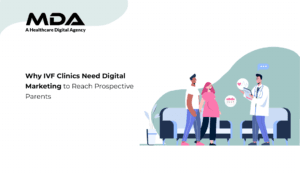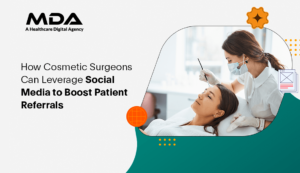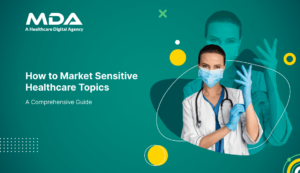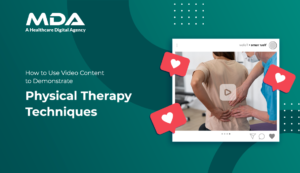App development in the healthcare industry has become an integral part of the field, aimed at improving the lives of patients and healthcare professionals alike.
These applications are designed to help users keep track of their fitness goals, medical issues, doctor’s appointments or hospital visits.
In this blog post, we will take a closer look at the world of app development in the healthcare industry, exploring the costs associated with it, different types of healthcare apps and the essential functionalities they offer.
The Rise of Healthcare Apps
The mobile healthcare app industry is on the rise, with impressive statistics indicating its potential. It is estimated that there are around 3.2 million mobile health apps in the market, which shows the growing demand for such apps.
Furthermore, around 60% of smartphone users have installed apps related to healthcare on their phones once or more, emphasizing their popularity.
In the US alone, the market for healthcare apps was estimated at $60 billion in 2020, and it is predicted that up to $200 billion can be saved by using remote patient monitoring.
The COVID-19 pandemic, which broke out in 2020, further emphasized the importance of digital healthcare solutions, prompting a rapid increase in the number of healthcare apps available on mobile devices. These trends demonstrate that the healthcare industry is undergoing a significant transformation and that healthcare app development is at the forefront of this evolution.
What does App Development in the Healthcare Industry mean?
App development for healthcare is the process of creating smartphone applications dedicated to helping users improve their health and well-being.
These apps serve a dual purpose: they empower patients to manage their health more effectively and they provide healthcare professionals with tools to enhance their operations.
In addition to patients, healthcare apps can be used by healthcare professionals, including doctors, nurses and hospital administrators. They offer various functionalities, such as telemedicine, practice management, medical billing software and medical coding.
These applications have become a bridge between patients and healthcare experts, simplifying medical consultations, appointments and information exchange.
Differentiating Health and Medical Apps
It is important to distinguish between medical apps and health apps. Health apps cater to various individuals, including doctors, patients, fitness enthusiasts, dietitians and more. These apps aim to improve general well-being, fitness and health.
On the other hand, medical apps are specifically designed for the practice of medicine and must adhere to rigorous standards and regulations. They do not replace a doctor’s evaluation or diagnosis and are subject to compliance with healthcare guidelines such as Electronic Visit Verification (EVV), FDA clearance, HIPAA standards, etc.
Healthcare App Types
Healthcare apps come in various categories, each serving specific purposes and catering to different user groups.
Here are the two primary categories:
1. Applications for Healthcare Professionals
- Medical Record Apps:
Medical record apps contain a patient’s medical history, allowing doctors to update records and prescriptions.
- Diagnosis and Clinical Apps:
Clinical and diagnosis apps make it easier to make and communicate clinical decisions among professionals.
- Medical Database Applications:
Medical database apps that let doctors save and access a patient’s medical information, including symptoms, medications and prescriptions.
- Medical Billing Apps:
Medical billing apps streamline the invoicing and billing processes, making it easier for doctors and administrators to manage financial aspects.
- Telehealth:
Telehealth apps enable individuals to communicate with healthcare professionals online, offering essential services and consultations from the comfort of their homes.
2. Applications for Patients
- Fitness Apps:
Fitness apps help users maintain an active and healthy lifestyle, offering features like workout tracking and nutrition monitoring.
- Appointment Scheduling Apps:
Patients can schedule appointments, track their medical history and receive notifications, ensuring efficient communication with healthcare providers.
- Keeping a Personal Health Record:
Ideal for patients with chronic diseases, these apps allow real-time health monitoring, enabling timely adjustments to treatment plans.
- Lifestyle Apps:
Lifestyle apps guide their users on how to maintain a healthy routine and diet, offering workout plans and nutrition advice.
- Nutrition and Diet Apps:
Dedicated to nutrition and diet, these apps assist users in maintaining a balanced diet and monitoring their eating habits.
Some Examples of Effective Healthcare Apps
Several healthcare apps have gained recognition for their ability to help users manage their health effectively.
A few examples are listed below:
- Amwell:
A popular telehealth application that connects patients with healthcare professionals for urgent care appointments via the internet.
- Dminder:
Users can use this app to track their sun exposure and sleep, promoting overall health and well-being.
- Doximity:
An application for medical social networks that serves as a valuable resource for healthcare workers, offering medical news and residency rank tracking.
- Epocrates:
An extensive resource for patients seeking information about medicine and drug usage, aiding them in understanding various drugs, side effects dosages and more.
- Medisafe:
Users can use this app to remind them to take their medications at the right time, simplifying the process of medication management.
A Step-by-Step Guide to Building a Healthcare App
Developing a healthcare app is a comprehensive process that requires careful planning and execution.
Here are the essential steps involved in building a successful healthcare app:
Step #1: Determine Your App’s Purpose and Audience
As the first step, you need to figure out why you are creating your healthcare app and who it is meant for.
Is it meant for patients, healthcare professionals or administrators?
Identify the core functions it will perform and define your target audience. This is the foundational stage where you set the direction for your app’s development.
Step #2: Dive into Audience Understanding
After defining your app’s purpose, it is time to understand the people who will use it.
Conduct in-depth research to discover the preferences and needs of your target audience.
Explore their demographics, such as age, gender and location. Also, examine their health-related goals. This knowledge will help you create an app that truly resonates with your users.
Step #3: Build Your Dream Team
Creating a healthcare app requires a skilled team.
Assemble a group of professionals who are experienced in developing apps. Your team should include designers, developers and quality assurance (QA) testers who are experienced at app development in the healthcare industry.
Having the right team is crucial to a successful project.
Step #4: Create a Minimal Version to Test
Before going all-in with your app, it is always a wise choice to develop a Minimum Viable Product (MVP).
This stripped-down version will help you test your app’s concept and features. It gives you a chance to see if your app aligns with what users need.
The MVP is an essential step that can save you time and resources in the long run.
Step #5: Rigorous Testing for a Flawless App
Testing is where you put your app to the test and see how it performs.
Conduct thorough testing to identify any issues. The goal is to ensure your app functions smoothly and provides a satisfying user experience.
Fixing problems at this stage is far easier than doing so after the app is launched.
Step #6: Take Your App to the World
Once your app is polished and ready, it is time to launch it.
Release it on popular platforms like the iOS App Store and Android’s Play Store.
This step makes your app accessible to your intended audience, and it is a milestone in your app’s journey.
Step #7: Continuously Improve and Adapt
Even after the launch, there is still work that needs to be done.
Continuously monitor your app’s performance. Collect user feedback to understand their experiences and expectations. Use this valuable input to make improvements that enhance the user experience and address any issues that may arise.
An app’s growth and success depend on its ability to evolve and adapt to user needs.
How Much does Healthcare App Development Cost?
The healthcare app development cost varies depending on various factors, including the app’s complexity, features and platform.
According to general estimations, the cost can range from $40,000 to $50,000.
However, more complex apps that incorporate AI, IoT and real-time functionality can cost between the range of $100,000 and $150,000.
The cost of app development for healthcare is influenced by various stages, including the planning stage, the development process and the implementation process. Pre-development costs include app design, user research and ensuring compliance with regulations such as HIPAA.
Additionally, the platform selected along with the location of the development company impact costs. In the US, hourly rates for app development typically fall between $150 and $250, while in Europe, rates are between $85 and $150 per hour.
A Healthcare Application’s Benefits
App development for healthcare offers numerous benefits to both healthcare professionals and patients.
Here are some key advantages:
For Doctors:
- Remote Access:
Doctors can provide healthcare services to remote areas through telehealth apps, improving access to medical care.
- Reduced Cost:
Healthcare apps can streamline operations, reduce manual effort and save costs for practitioners.
- Improved Productivity:
Doctors can access patient information more efficiently, resulting in better patient care and time savings.
- Create New Business Models:
Healthcare apps open up new possibilities for innovative recommendations, allowing doctors to build patient relationships and referrals.
For Patients:
- Secure Communication:
Patients can securely share medical information and communicate with healthcare providers through HIPAA-compliant encryption.
- Appointment Scheduling:
Healthcare apps make it easy for patients to schedule appointments and receive timely reminders.
- Single Repository:
Patients can store all their medical information in one place, making it convenient for healthcare providers to access as well as update their records.
- Consultation Recording:
Patients can keep audio records of their conversations with doctors, ensuring they do not miss any important information.
Why Choose MDA for Your Healthcare App Project?
At MDA, we offer a reliable and experienced team for your healthcare app development project.
Here are a few benefits of working with us:
- Data Security:
We prioritize data security and ensure compliance with healthcare regulations, such as HIPAA, to protect sensitive medical information.
- Integration Standards:
Our team is well-versed in integrating the latest technologies, such as IoT, AI, blockchain and VR to deliver cutting-edge healthcare solutions.
- Latest Features:
We offer a wide range of features, including listings, search, booking, blockchain and AI integration, video conferencing, medicinal records, trending wearable technologies and chat or messaging.
- Technology:
Our expertise includes a deep understanding of technologies like AI, blockchain, IoT, healthcare gamification, 3D videos, VR, etc. We also have experience with various APIs, such as Human API, Box API, DrChrono API and BlueEHR.
In Summary
As the world becomes increasingly digital, app development for healthcare is at the forefront of transforming the healthcare sector. These apps offer a wide range of benefits to both healthcare professionals and patients, revolutionizing the way healthcare services are delivered and accessed.
If you are considering venturing into healthcare app development, now is the time to enter this dynamic and promising field.
Partner with MDA and let us help you develop mobile healthcare applications that focus on simplicity and exceptional user experiences.
Your journey to improving healthcare starts here.

Meet Nandini Pathak, our tech-savvy content writer who adores dogs. With SEO proficiency, she crafts engaging content in the world of technology. Her curiosity drives her passion for learning and growth. Whether she’s writing about the latest trends or simplifying complex ideas, Nandini’s love of technology is clear. Her words not only inform but also resonate. With every piece she creates, she blends her expertise and enthusiasm, making technology accessible and exciting for all.






